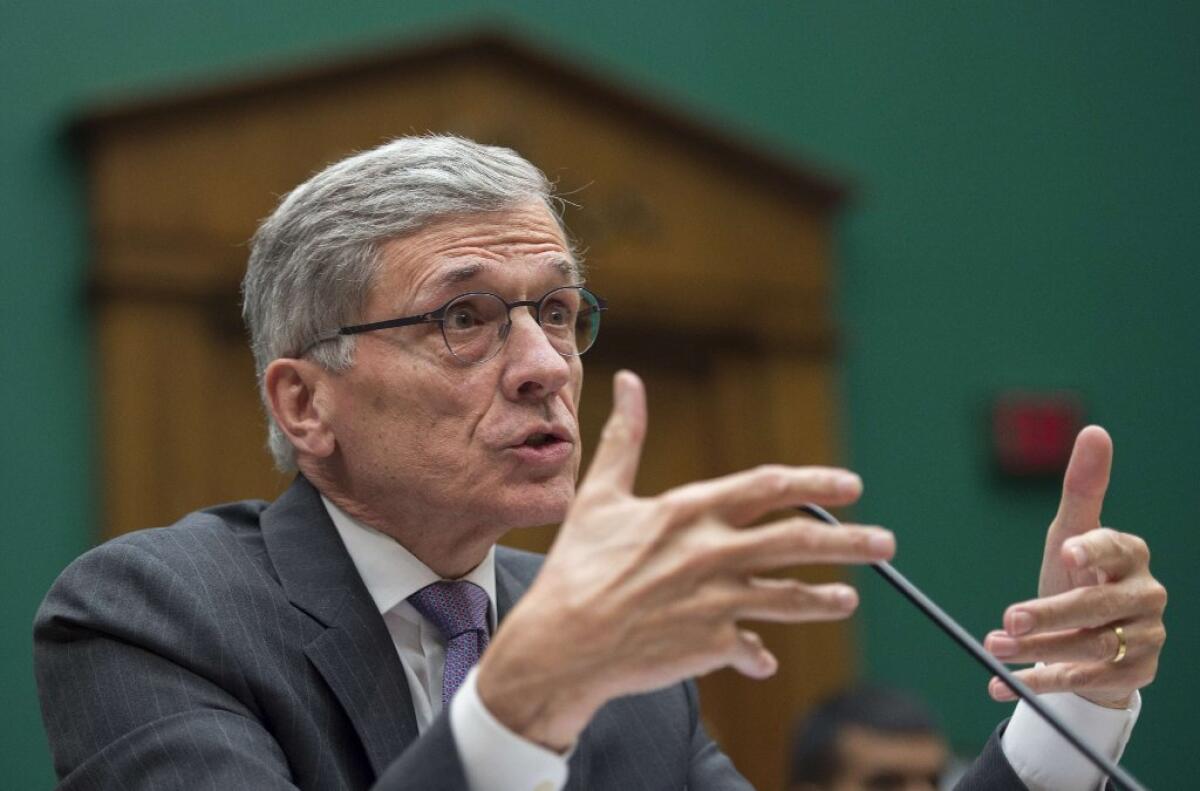FCC chairman expresses concern about TV networks blocking websites

Federal Communications Commission Chairman Tom Wheeler expressed concern during a congressional hearing over the growing practice of programmers blocking access to their websites during fights with pay-TV and broadband providers.
Asked by Rep. Peter Welch (D-Vt.) if such incidents are a sign of the “cable-ization” of the Internet, a reference to the television blackouts that often occur when networks are unable to strike new distribution agreements, Wheeler said it is something “we should all worry about.”
Wheeler made his remarks during a House Energy & Commerce Committee’s subcommittee on communications and technology oversight hearing on the FCC.
Programmers argue that if they are blocking subscribers from getting their channel because of a contractual fight with their cable/broadband provider, it only makes sense to also make sure there is no end-around to that content via the Internet.
The practice of blocking consumers from websites if their cable/broadband provider is in a distribution fight is believed to have started a few years ago when Fox and Cablevision Systems Corp. were in a spat. Fox briefly blocked Cablevision subscribers who were also broadband customers from accessing its websites. After there was a backlash from media watchdogs, Fox stopped.
Last summer, when CBS signals went off of many Time Warner Cable systems, the network also blocked the cable company’s customers from accessing the network’s websites. CBS went so far as to block all Time Warner Cable subscribers access to their sites, not just those in the cities were there was a feud.
Currently, Viacom is blocking access to some of its online content to customers of Cable One, a pay-TV distributor it is having a fight with over regarding fees for its networks, including MTV and Comedy Central.
“Cable One has chosen to no longer carry Viacom programming and, as a result, it is no longer available to Cable One customers in any form,” A Viacom spokesman said.
Where the issue gets complicated is when a programmer is blocking access to content that anyone can get for free from their website regardless of whether they have a subscription to a pay-TV provider.
Viacom noted that it isn’t shutting down its entire site to Cable One customers. It just isn’t making full episodes of shows available to them since the cable and broadband company currently has no contract to carry the channels.
One of the unintended consequences of this strategy, though, is that such blocking can also prevent a consumer who has a different pay-TV provider from getting access to a network’s website merely because they have the wrong broadband provider.
In other words, a person who gets their TV from DirecTV or Dish but their broadband from the cable company could find themselves blocked even though their pay-TV provider is not engaged in any feud over channel fees.
More to Read
From the Oscars to the Emmys.
Get the Envelope newsletter for exclusive awards season coverage, behind-the-scenes stories from the Envelope podcast and columnist Glenn Whipp’s must-read analysis.
You may occasionally receive promotional content from the Los Angeles Times.











